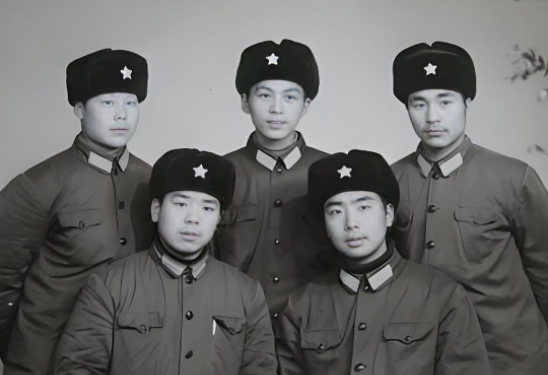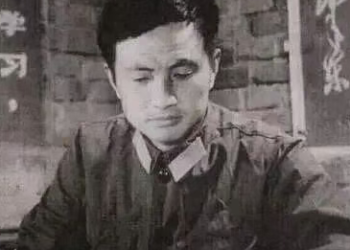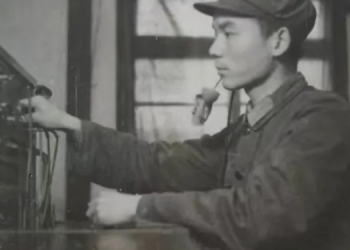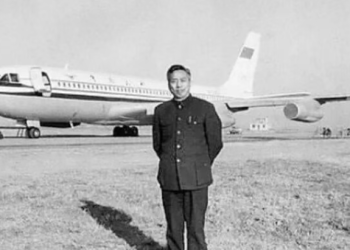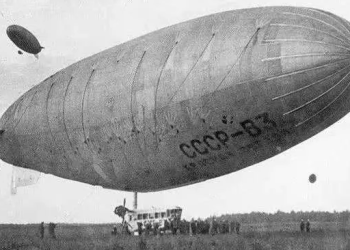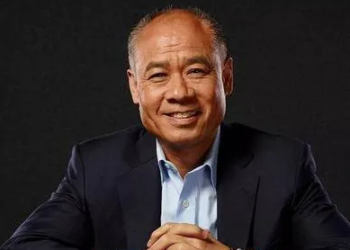In December 1972, amid the well-wishes and farewells from my family and fellow villagers, I left my hometown in Henan Province, where I had lived for 18 years. More than a hundred new recruits from the entire county gathered at the county armed forces department. After a brief celebration, we boarded a sealed military train carriage, our hearts filled with excitement as we journeyed to the army barracks.
It was my first time on a train. As the train slowly pulled out of the station with a roar and the wheels clattered rhythmically, I sat inside the carriage, overwhelmed with thoughts. Though I knew joining the army might be the start of a new chapter in life, the idea of not seeing my parents and siblings for several years weighed heavily on me.
I was the eldest son in the family. My parents had worked tirelessly to raise us, even sending me to middle school—which back then was a four-year system, two years each for junior and senior high. But with the college entrance exams yet to be reinstated, I had no choice but to return home to earn work points and make a living.

I had intended to enlist the previous year, but there was no national conscription in 1972. After waiting a year, recruitment resumed at the end of 1972 (for the 1973 cohort), and I immediately signed up. Though my parents were reluctant to see me go, they understood that stepping out into the world was the only path to a better future. Fortunately, I passed the physical examination easily, and as a son of poor and lower-middle peasants, my political background was impeccable. Thus, I successfully joined the army.
The night before leaving home, my parents spoke to me at length. They urged me to work hard in the army, not to worry about the family, and to take care of myself, hoping to ease my concerns.
But I knew that once I left, the burden on my parents would only grow heavier. At a time when the family needed another able-bodied laborer to help earn a living, I chose to enlist and leave home. I couldn’t shake a sense of guilt. The thought alone brought tears to my eyes.
Lost in my emotions, I was suddenly pulled back to reality by the loud chatter of my fellow recruits. I quickly wiped away my tears and joined them. Everyone talked excitedly about the army life ahead. Since most of us were leaving home for the first time, we each brought homemade food from our families to share. The atmosphere was harmonious and warm.
Later, we were given bread on the train. Everyone found it fascinating, having never seen or tasted it before. Some cherished it so much that they saved it to eat only after arriving at the army camp.

Younger generations today might find this hard to believe, but it was entirely real back then. Many families couldn’t even guarantee enough food. In households with few laborers, like mine, subsistence was barely manageable. We had six people: three siblings, parents, and our grandmother. But only my father and mother could work full time. After finishing high school, I became a part-time laborer too. My father earned 10 work points a day, my mother 8, and I also earned 8 points because I wasn’t very skilled in farm work. With few points came little food, so going hungry wasn’t uncommon. For many, joining the army wasn’t just about patriotism; it was also about the hope of getting enough to eat.
After a few hours, the train stopped at a station for lunch. After eating, I wandered into the waiting room, curious about my surroundings. Suddenly, I heard the sharp whistle of the train. My heart jumped: it must be departing!
I rushed toward the platform and managed to get back on board, but to my surprise, I had entered the wrong carriage—the one for commanding officers.
As I stood there confused, a tall officer in a four-pocket uniform (I later learned he was Deputy Director Zhou of the regiment’s political department, from Anhui) approached and asked, “Kid, how did you end up in my carriage?”
I quickly explained that I had boarded the wrong carriage in a panic. Director Zhou didn’t say much more and simply instructed me to return to my original carriage at the next stop to avoid being marked as missing.
I nodded and found a seat.
Compared to the previous carriage, this one was much quieter. Bored, I struck up a conversation with a soldier nearby. Unexpectedly, this soldier turned out to be my lucky star.

As we chatted, Deputy Director Zhou unrolled a large sheet of paper on the floor and began marking it with a pen.
Curious, I asked my new acquaintance what the officer was doing.
“He’s assigning units,” the soldier replied.
Now interested, I stretched my neck to see. Numbers and names were being listed. Each number represented a unit, and the names following them were those assigned to it.
I noticed something odd: most unit numbers had several names, but Unit 16 had only two. I asked why.
“They need one more person for Unit 16,” the soldier said. “They’re looking for someone who knows how to cut hair.”
Immediately I said, “I can cut hair! My uncle is a barber. I learned from him during summer vacations in middle school. I cut my family’s hair all the time.”
Deputy Director Zhou overheard and, after hearing my detailed explanation, said, “All right, it’s you.”
He wrote 16 next to my name.
And so, by sheer coincidence, I became a barber in the army—a twist of fate that would later change my life.
After arriving at the base in Jilin, we underwent three months of basic training. Upon completion, I was assigned to the regimental headquarters’ administration division as a barber.
There were two barbers in total: Chen Fuming, who enlisted in 1970 from Anhui, and Zhang Guofu, a 1969 recruit from Henan. Both were seniors and easy to get along with. Zhang, being my fellow Henanese, became a close friend and mentor.
He told me that barbering was an art. Technique was important, but so were communication skills. Our clients were mostly staff officers and political department cadres, so we had to be attentive, polite, and diplomatic.
Thanks to the skills I learned from my uncle and the guidance from my two seniors, my barbering improved rapidly.
A good haircut requires attention to personality and head shape. You have to examine whether someone has a pronounced back skull or a low hairline. Only after forming a clear idea should you begin.
Still, mistakes happened in the beginning.
Officers often asked for a shave along with their haircut. Once, I gave a shave to a staff officer. He had a good head shape and little facial hair. Confidently, I started shaving with practiced ease. But I hadn’t applied the hot towel long enough, and though I shaved cleanly and didn’t nick him, he felt uncomfortable. When I asked for feedback, he subtly replied, “You should learn from Master Zhang.”
I told Zhang Guofu about it, and he explained that the problem was the short steaming time. The beard hadn’t softened enough, so although the shave was clean, it lacked comfort.
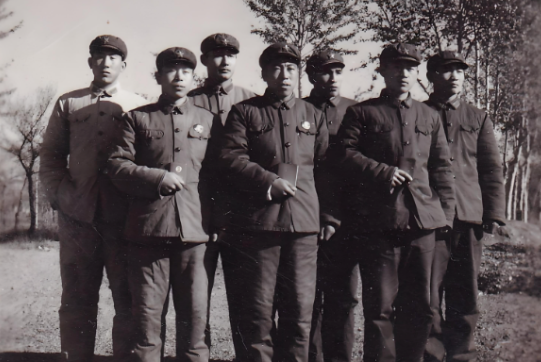
From then on, I paid special attention to the steaming process. With practice, I mastered all aspects of barbering—cutting, shaving, even ear-cleaning. My services earned praise from both officers and soldiers.
Over the year and a half I served as a barber, I learned how to interact with people and developed a meticulous work ethic. Most importantly, I met the regiment commander, who appreciated my work and later changed my life trajectory.
One Sunday afternoon in July 1973, as I was preparing to close the shop, I saw the commander walking toward the barber room.
Before I could say anything, he joked, “What, is the shop closing already?”
I quickly welcomed him in. As he sat down, he said, “I heard your skills are pretty good. I thought I’d come and see for myself.”
He lived behind the guesthouse in our administration division, so I had often seen him but never spoken to him this closely. Nervous, I feared I might not do a good job.
Sensing my unease, he reassured me: “Relax, Xiao Zhao. Just treat me like any other staff officer.”
Encouraged, I calmed down. I combed his hair, studied his head shape, and only started cutting once I had a plan.
As I worked, he chatted with me about my family, why I enlisted, and how I was adjusting to army life. I answered everything honestly.
Upon learning I had finished high school, he said that was rare. He then asked how I ended up as a barber, and I told him about the coincidence.
We had a pleasant conversation, and I was deeply moved by his care and kindness. My work earned his praise.
From then on, unless he was on duty elsewhere, the commander regularly came to me for haircuts. Our bond grew.
Meanwhile, I continued my habit of writing. In a year and a half, I filled a notebook with articles. The commander read some and encouraged me to submit them.
In autumn 1974, during a routine visit, the commander suddenly asked if I wanted to transfer to the political department.
Recognizing his intent to mentor me, I gladly accepted. Soon after, I was reassigned to the regiment’s political office. Though I started with clerical tasks, I gained exposure to new people and experiences, which helped me grow.
I kept submitting articles and finally achieved a breakthrough.
In 1976, my report on our regiment’s advanced training program—”One Helps One, One Pair Competes” strategy—was published in a major military region newspaper. Our regiment gained recognition in the provincial military district, and I earned a third-class merit award.
In 1977, during my fifth year in the army, I was promoted and became a news officer in the political department. I continued working in journalism until I was discharged in 1985 and transitioned to civilian life.
